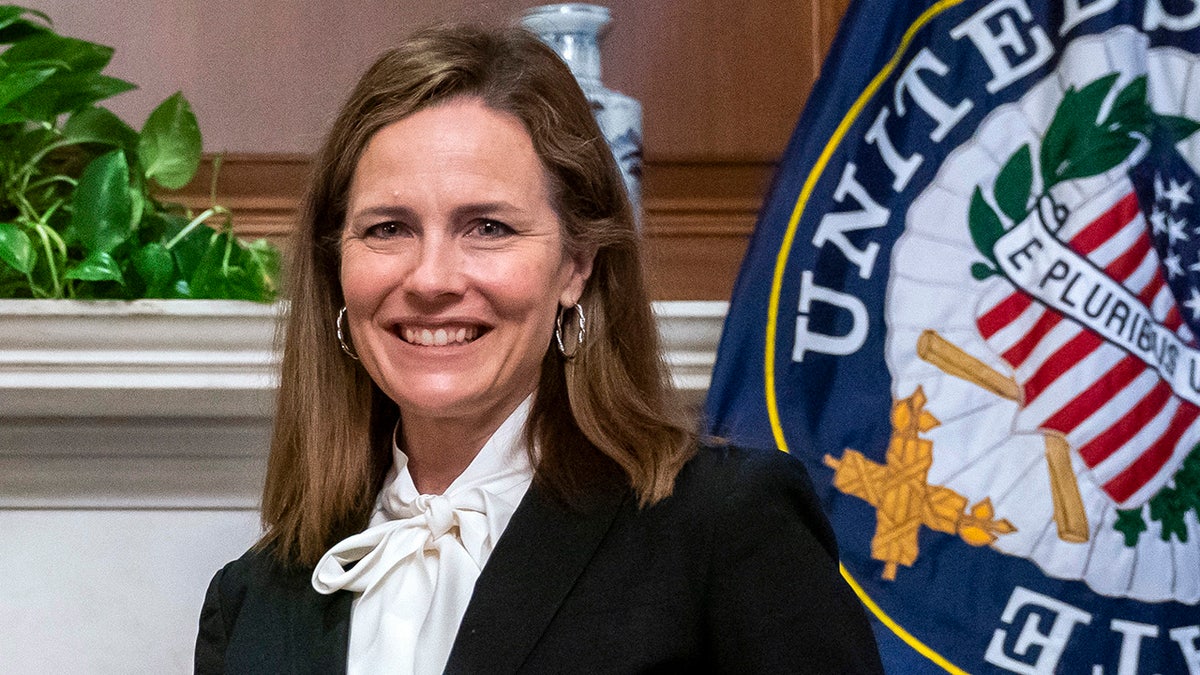MORNING GLORY: Saving civil discourse
Interviews with Supreme Court justices are rare because they come with guardrails which have to be respected. Having conducted interviews with Justices Stephen Breyer, Neil Gorsuch, Clarence Thomas and now Amy Coney Barrett, it is useful to put those rules down for future interviewers. It is a very good thing that sitting justices write books, especially when they are accessible to laymen as Justice Barretts new "Listening to the Law" and Justice Gorsuchs "Overruled" from last year both accomplished.Justice Breyers "Making Our Democracy Work" was an excellent argument for his approach to judging. "My Grandfathers Son" was an eye-opening account of Justice Thomas' life, from its incredibly challenging beginnings as well as of the path he followed through his college radical days to One First Street. (Justice Sotomayors books have not crossed my desk with a request from her publisher for an interview, so I havent talked with her, but applaud her variety of titles.)Justices must be discrete about their public appearances because litigants are entitled to open minds when their cases are heard by the highest court. We do not want we really cannot afford to have a Court full of pundits who have held forth on the controversies of the day in such a way as to persuade a fair-minded observer that any of their nine minds are made up.BARRETT SAYS JUSTICES 'WEAR BLACK, NOT RED OR BLUE' IN RESPONSE TO PARTISAN CRITICS IN FOX NEWS INTERVIEWIt is fine for the political branches to weigh in on every question of the day, but not so the Court charged with rendering final and binding opinions on questions being debated across the land.Whatever your opinion on the Courts decisions, those decisions are explained via the opinions that they issue and most of those can be absorbed at least in large part by laymen. Lawyers and law professors might guess how particular questions reaching the Court will be decided, but guesses arent votes by justices and even 500 or 5,000 guesses dont add up to the five votes necessary for a majority opinion. (There are approximately 9,000 full-time law professors in the United States. There are often far more than 500 guesses and sometimes beyond 5,000 when journalists and pundits pile on.)How then to know how the Court works without spending a year in Constitutional law coursework? Beginning with Justice Amy Coney Barretts "Listening to the Law" is a great place to begin. She begins with the assumption that the reader is bright, but not learned in the law. Its an excellent starting point for even law students, but especially for the public.The Supreme Court and, indeed, all federal courts are courts of limited jurisdiction. The Supreme Court was summoned into being by the ratification of the Constitution in 1789, the lower federal courts by various acts of Congress dating back to the very first Judiciary Act which arrived in 1789.CLICK HERE FOR MORE FOX NEWS OPINIONBut Article III makes clear the Supreme Court only hears "cases" and "controversies" that come before it. The Court does not have a roving Constitutional commission to seek out and remedy what a majority of its nine justices think requires one. Justice Barrett underscores this point in "Listening to the Law," as well as other major doctrines that limit the Courts reach, as well as the variety of "canons" which govern its deliberations. She is also specific as to the procedures of how the Court goes about its work and in a wonderfully charming, illuminating fashion.She arrived, first at the Seventh Circuit and then at the Supreme Court, with a reputation for brilliance as well as collegiality and both virtues are on display in "Listening to the Law." In our recent talks, Justice Barrett and I discussed civility in society and the descent of public discourse into the lowest cellars of the internet. In her book, justice raises the bar, significantly. We have to hope her example is contagious.Hugh Hewitt is host of "The Hugh Hewitt Show," heard weekday mornings 6am to 9am ET on the Salem Radio Network, and simulcast on Salem News Channel. Hugh wakes up America on over 400 affiliates nationwide, and on all the streaming platforms where SNC can be seen. He is a frequent guest on the Fox News Channels news roundtable hosted by Bret Baier weekdays at 6pm ET. A son of Ohio and a graduate of Harvard College and the University of Michigan Law School, Hewitt has been a Professor of Law at Chapman Universitys Fowler School of Law since 1996 where he teaches Constitutional Law. Hewitt launched his eponymous radio show from Los Angeles in 1990. Hewitt has frequently appeared on every major national news television network, hosted television shows for PBS and MSNBC, written for every major American paper, has authored a dozen books and moderated a score of Republican candidate debates, most recently the November 2023 Republican presidential debate in Miami and four Republican presidential debates in the 2015-16 cycle. Hewitt focuses his radio show and his column on the Constitution, national security, American politics and the Cleveland Browns and Guardians. Hewitt has interviewed tens of thousands of guests from Democrats Hillary Clinton and John Kerry to Republican Presidents George W. Bush and Donald Trump over his 40 years in broadcast, and this column previews the lead story that will drive his radio/ TV show today.CLICK HERE TO READ MORE FROM HUGH HEWITT




